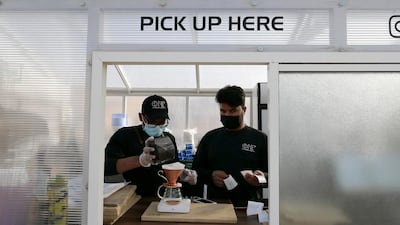Unvaccinated employees working in five industries must take a PCR test every 14 days, under new rules.
The measure, which is effective as of March 28, applies to anyone employed by hotels, restaurants, transportation companies, laundries, beauty salons and hairdressers.
It is part of plans to “limit the spread of the virus, preserve the health of employees and keep work environments safe,” according to a briefing note issued by The Ministry of Human Resources and Emiratisation.
The decision was made jointly with the National Emergency Crisis and Management Authority, it said.
All private sector companies operating in the UAE have been asked to encourage their employees to get vaccinated against the virus, said the note.
The news came as Abu Dhabi announced that employees in “vital sectors and service industries” must undergo a PCR test every two weeks.
They will be free of charge for those working in vital sectors and service industries.
The number of daily tests has grown in recent weeks as part of a strategy to control the spread of the virus.
Many employees are tested routinely and regularly, in some cases as often as every seven days in Abu Dhabi.
On Sunday, the UAE expanded its mass vaccination programme after prioritising vulnerable groups for six weeks. Authorities urged anyone still waiting for the vaccine to book appointments immediately.
Eligible citizens and residents aged 16 and above can now be inoculated free of charge at any of the 205 vaccination locations nationwide, the health ministry said.
Officials urged people to book in advance. However, vulnerable people without appointments will continue to receive priority at walk-in clinics.
Almost 76,000 doses of the vaccine were administered in a 24-hour period up to Monday, bringing the total number since the start of the campaign in December to more than 7.3 million.














